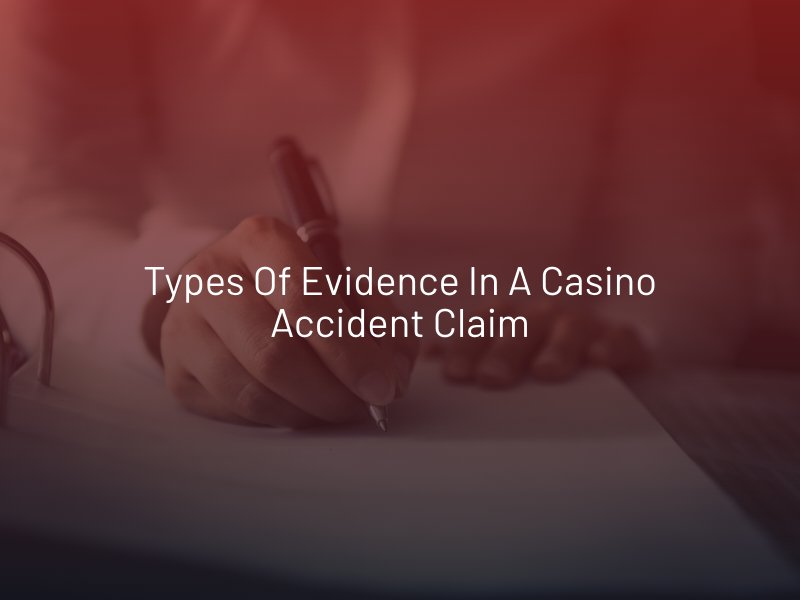How To Prove Negligence in a Las Vegas Casino Accident
In a casino accident claim, establishing negligence is crucial for determining liability and securing compensation for injuries and damages. Negligence refers to the failure to exercise reasonable care, resulting in harm to another person. To prove negligence in a casino accident claim, several elements must be demonstrated.
Elements of Negligence
- Duty of Care: The first element of negligence is establishing that the defendant (such as the casino or its employees) owed a duty of care to the plaintiff (the injured party). In the context of a casino, this duty typically involves ensuring the safety and well-being of patrons and visitors on the premises.
- Breach of Duty: The plaintiff must show that the defendant breached the duty of care owed to them. This could involve failing to maintain safe premises, inadequate security measures, negligence in maintaining equipment or facilities, or other acts of negligence that directly contributed to the accident.
- Causation: The plaintiff must demonstrate that the defendant’s breach of duty was the direct cause of their injuries. In other words, the plaintiff must show that the accident would not have occurred if not for the defendant’s negligence.
- Proximate Cause: Proximate cause refers to the legal concept that the defendant’s actions were a foreseeable cause of the plaintiff’s injuries. It requires establishing a direct connection between the defendant’s negligence and the harm suffered by the plaintiff.
- Damages: Finally, the plaintiff must have suffered actual damages as a result of the defendant’s negligence. This can include physical injuries, emotional distress, medical expenses, lost wages, property damage, and other economic and non-economic losses.
Types of Evidence in a Casino Accident Claim
In a casino accident claim, gathering evidence is crucial to establishing liability and proving negligence. Examples of evidence that can strengthen a case include:

- Incident Reports: If the casino maintains incident or accident reports, obtaining a copy can provide valuable information about the circumstances surrounding the accident, including the date, time, location, and description of the incident. Additionally, any evidence of prior accidents or safety violations at the casino can demonstrate a pattern of negligence and strengthen your case.
- Witness Statements: Statements from witnesses who observed the accident can corroborate your version of events and provide additional details about what happened.
- Surveillance Footage: Many casinos have extensive surveillance systems that capture footage of the premises. Surveillance footage can provide visual evidence of how the accident occurred and who may be at fault.
- Photographs/Videos: Photos or videos taken at the scene of the accident can document hazardous conditions, such as wet floors, broken stairs, or defective equipment, which contributed to the incident.
- Medical Records: Medical records documenting your injuries, treatment received, and prognosis can establish the extent of your damages and the need for compensation.
- Maintenance Records: Records showing the casino’s maintenance and inspection history can reveal whether the property was properly maintained.
- Expert Opinions: Expert witnesses, such as engineers or safety consultants, can provide professional opinions on liability issues, such as whether the casino failed to meet industry standards for premises safety.
- Casino Policies/Procedures: Documentation of the casino’s policies and procedures regarding premises safety, security measures, and accident reporting can be used to establish whether the casino breached its duty of care.
- Financial Records: Financial records, such as medical bills, receipts for expenses related to the accident, and documentation of lost wages, can quantify your economic damages.
A Las Vegas Casino Injury Lawyer can be instrumental in helping you prove negligence in your casino injury claim. They have the knowledge and resources to thoroughly investigate, gather evidence on your behalf, and analyze the legal aspects of your case. They can build a compelling argument to establish negligence and significantly increase your chances of obtaining maximum compensation.